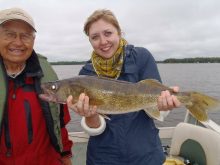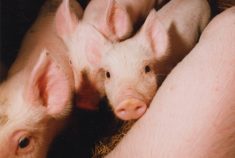Manitoba farmers will soon be able to claim full reimbursement for wildlife damage to losses to crops and livestock.
The Manitoba government says it will restore 100 per cent compensation for damage from wildlife predation. The coverage was previously lowered in 2005 under the federal-provincial Agriculture Policy Framework agreement.
The province made the announcement Nov. 24.
Compensation will move from the current 80 per cent of determined losses to 90 per cent in 2011-12 and 100 per cent in 2012-13, with the province picking up the extra 20 per cent tab.
Read Also

Mazergroup’s Bob Mazer dies
Mazergroup’s Bob Mazer, who helped grow his family’s company into a string of farm equipment dealerships and the main dealer for New Holland machinery in Saskatchewan and Manitoba, died July 6 from cancer.
The Manitoba Agricultural Services Corporation manages the compensation program.
The program covers losses to farmers caused by livestock predators and waterfowl. Examples include wild animals killing cattle, bears damaging honeybee colonies and migratory birds eating crops.
Keystone Agricultural Producers called the announcement welcome news to farmers who routinely lose livestock and grain to predators.
“It is only logical that farmers be compensated for damage that is beyond their control,” said Rob Brunel, KAP president.
The province warned, however, that producers must take reasonable steps to prevent wildlife damage by following proper storage and surveillance.
Producers who fail to take preventive measures after repeated losses may be denied future payments, said Stan Struthers, Manitoba Agriculture, Food and Rural Initiatives minister.
Livestock losses to wildlife predators is a perennial problem among Manitoba cattle producers. Resolutions demanding better compensation often appear on the agendas of Manitoba Beef Producers meetings.
To receive compensation, producers filing claims must provide proof of loss. Producers often complain the burden of proof is too onorous. They say even a freshly killed carcass doesn’t always satisfy MASC adjusters. Producers say they practically have to catch the predator in the act before they can get compensation. [email protected]


















